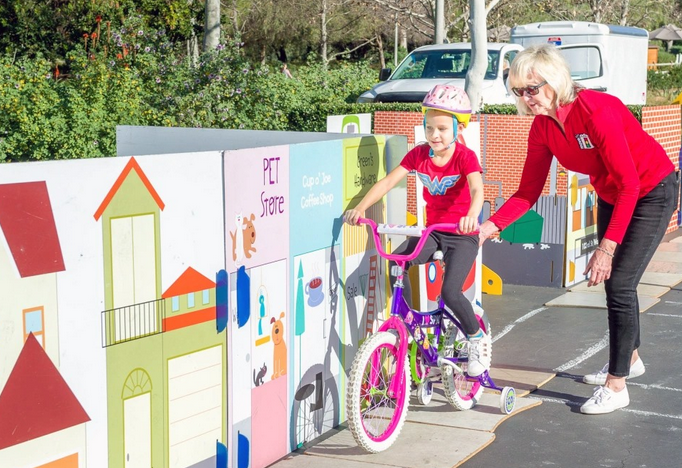There is little official opposition position to A.B. 122, the "Safety Stop" bill from Assemblymember Tasha Boerner Horvath (D-Encinitas) that would allow bike riders to treat stop signs as yield signs. Evidence from other states that have adopted similar laws in the last few years show that the common-sense change results in fewer crashes, and the bill would also remove a pretext for ticketing bike riders who are behaving rationally.
However, there has been one outspoken opponent of A.B. 122. Patricia Hines is a bicyclist and safety advocate, founder of Safe Moves, a bike safety education program in Los Angeles City Schools, and a leading voice behind the 1993 bill that requires children and youth under eighteen to wear a bike helmet.
Hines has been telling a compelling story about why she opposes the stop-as-yield bill, even though it doesn't exactly fit the bill. Years ago, she says, she was cycling with a friend, and the two of them "blew through" a stop sign. Hines made it across, she says, but her friend was struck and killed by a hit-and-run driver.
But that's not what happened.
Ted Rogers at Biking in L.A. found contemporary accounts of the crash that killed her friend, and the story is very different. For one, there was no stop sign involved. Hines probably wasn't even with her friend on the ride.
It looks like Hines rewrote the story of her friend's tragic death and has been using her version for her own personal agenda.
The actual story was much worse, if a story about someone's death can be: police said Hines' friend was on the side of the road, fixing her bike, when she was struck by a car. The driver and maybe a passenger got out and dragged her some distance, partially undressed her - perhaps to cover up the true cause of her death - and left her to die.
Memory can be tricky - this is a crash that happened in the early '80s, after all. But it is very odd that such dramatic details would have been forgotten.
Especially because Hines keeps telling the story.
She has said that her friend's death was what compelled her to become a bike safety advocate, saying that she felt guilty for encouraging her friend to ride a bike and did not want her death to be forgotten.
She parlayed that story into a cautionary tale she used to help raise money to establish and run a bike and traffic safety program at a few schools in the L.A. Unified School district. The program's three-year, $660,000 contract is up for renewal this week.
As recently as a few weeks ago, Race Across America posted the supposed origin story on Facebook, writing that Hines and her friend, Sue Latham, were "riding together when Latham was struck by a car and killed. They were training for the 1984 Olympics. This heartbreaking event propelled Hines into public service. She became one of the nation’s most vocal and best-recognized activists in the area of traffic and bicycle safety."
But Latham was not training for the Olympics. The two women were members of a swim club that had planned a bike ride that day, according to press reports at the time, but there is no indication that they were riding together.
And there's no mention of a stop sign.
Rogers offers more detail here about the way Hines' story changed over time.
A.B. 122, meanwhile, has passed the Assembly and is waiting to be heard by the Senate Transportation Committee. Stay tuned to find out whether Patricia Hines will once again weigh in on it.






